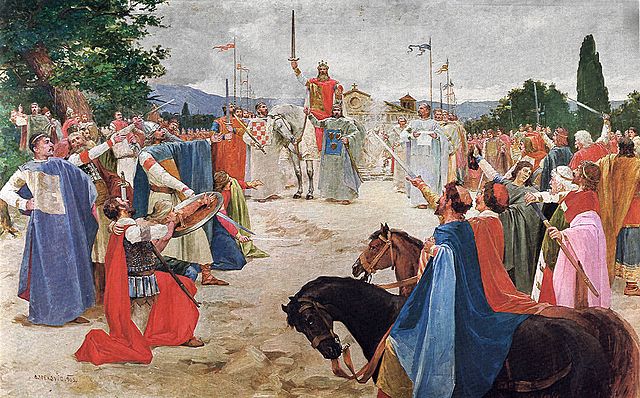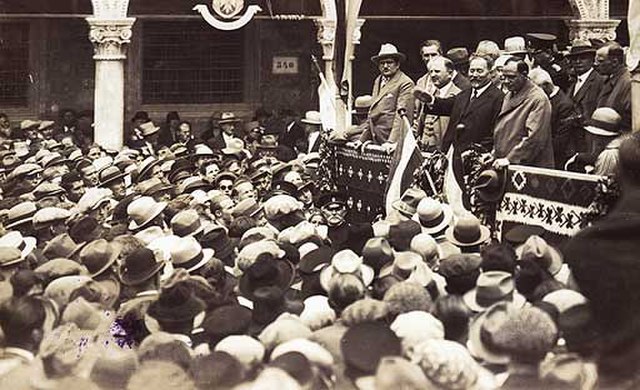Transport in Croatia relies on several main modes, including transport by car, train, ship and plane. Road transport incorporates a comprehensive network of state, county and local routes augmented by a network of highways for long-distance travelling. Water transport can be divided into sea, based on the ports of Rijeka, Ploče, Split and Zadar, and river transport, based on Sava, Danube and, to a lesser extent, Drava. Croatia has 9 international airports and several airlines, of which the most notable are Croatia Airlines and Trade Air. Rail network is fairly developed but regarding inter-city transport, bus tends to be far more common than the rail.
National carrier Croatia Airlines taking off at Franjo Tuđman Airport
A1 motorway entrance near Maslenica
Bus from the company "Presečki d.o.o." at Donja Stubica bus stop
Panorama of Port of Rijeka
Croatia, officially the Republic of Croatia, is a country located at the crossroads of Central and Southeast Europe. Its coast lies entirely on the Adriatic Sea. Croatia borders Slovenia to the northwest, Hungary to the northeast, Serbia to the east, Bosnia and Herzegovina and Montenegro to the southeast, and shares a maritime border with Italy to the west. Its capital and largest city, Zagreb, forms one of the country's primary subdivisions, with twenty counties. Other major urban centers include Split, Rijeka and Osijek. The country spans 56,594 square kilometres, and has a population of nearly 3.9 million.
Coronation of King Tomislav by Oton Iveković
Ban Josip Jelačić at the opening of the first modern Croatian Parliament (Sabor), June 5, 1848. The Croatian tricolour flag can be seen in the background.
Mass protests in Zagreb against the unification of the State of Slovenes, Croats and Serbs with the Kingdom of Serbia in 1918.
Stjepan Radić, leader of the Croatian Peasant Party who advocated federal organisation of the Yugoslavia at the assembly in Dubrovnik, 1928. His death at the end of the same year as a result of an assassination in the National Assembly by NRS member, Serbian nationalist politician Puniša Račić, leads the country to a serious political crisis.








